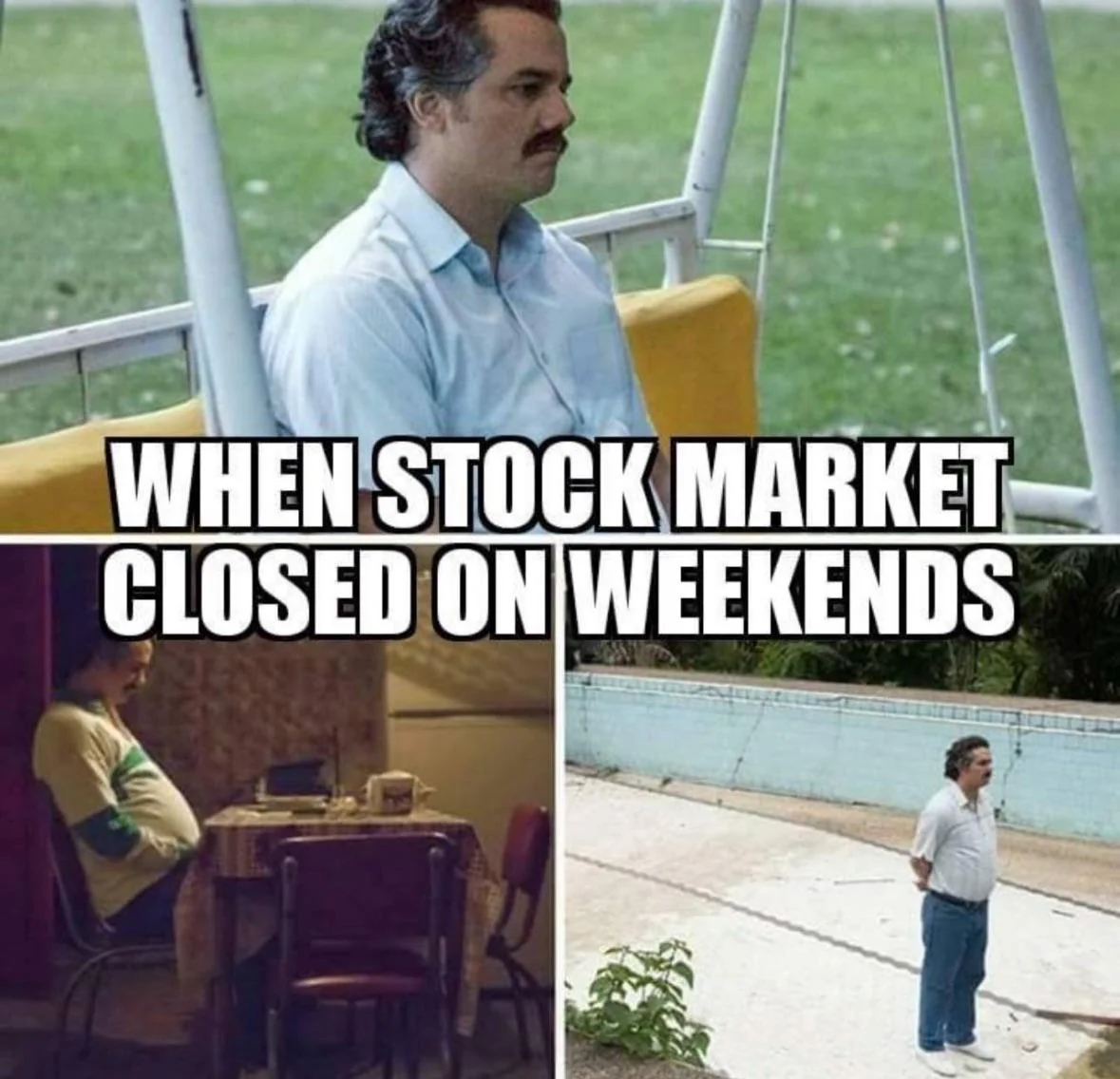If you're wondering whether the stock market is open on Saturdays and Sundays, you're not alone. New and experienced traders often ask this due to global time zones, 24/7 news cycles, and the rise of weekend crypto trading.
The short answer is that the traditional stock markets, such as the NYSE and NASDAQ, are closed on weekends. However, investors should be aware of exceptions and alternatives in 2025.
This guide outlines weekend trading hours across major global exchanges, alternatives, and tips for planning trades around the weekend gap.
Is the Stock Market Open on Weekends?

United States
Europe
Asia-Pacific
Tokyo Stock Exchange, Hong Kong Stock Exchange, Australian Securities Exchange: Closed on weekends.
Middle East (Exceptions)
Here's a general snapshot of when some of the world's biggest exchanges operate (all in local time):
| Exchange |
Country |
Open Days |
Open Hours |
| NYSE / NASDAQ |
USA |
Mon–Fri |
9:30 AM – 4:00 PM EST |
| LSE |
UK |
Mon–Fri |
8:00 AM – 4:30 PM GMT |
| TSE |
Japan |
Mon–Fri |
9:00 AM – 3:00 PM JST |
| SSE |
China |
Mon–Fri |
9:30 AM – 3:00 PM CST |
| NSE / BSE |
India |
Mon–Fri |
9:15 AM – 3:30 PM IST |
Why Are Stock Markets Closed on Weekends?
1) Historical and Operational Reasons
The stock market schedule was designed to align with business and banking hours, which also follow a five-day workweek. Historically, trading was done in person, and most businesses were closed on weekends. Despite the rise of electronic trading, this convention continues.
2) Liquidity and Volume Considerations
Stock exchanges rely on high volumes and liquidity to ensure efficient price discovery. During weekends, market participation falls sharply, which can lead to increased volatility and reduced order execution quality. To avoid these issues, most exchanges remain closed.
3) Risk Management
Regulators and institutions prefer a defined window of trading for:
Managing daily settlements
Adjusting for news or earnings
Reducing round-the-clock risk exposure
Regional Case Studies
US Example: Earnings released on a Friday after close (e.g., tech companies) can spark Monday gaps.
Asia Example: News events over the weekend in China often affect Hong Kong and US futures before Monday's open.
Middle East Example: Saudi Arabia's Tadawul is open on Sunday, giving investors an early read on oil-linked stocks.
What Are Some Weekend Trading Alternatives? (2025 Update)

1) Futures Trading
Some brokers offer trading for index futures (S&P 500, Nasdaq 100) that open Sunday evening (6:00 PM ET) and run through Friday evening.
Gives investors a chance to react to weekend news before Monday's stock market open.
2) Cryptocurrency
Trades 24/7 worldwide (Bitcoin, Ethereum, etc.).
Often fills the demand for weekend trading and influences Monday stock market sentiment.
3) Weekend CFDs (Contracts for Difference)
Some brokers now offer "weekend trading" on CFDs for major indices such as the FTSE 100.
Practical Tips for Weekend Market Planning

Use limit orders instead of market orders when markets reopen to avoid slippage from weekend gaps.
Track futures and crypto over the weekend to gauge sentiment.
Keep an eye on economic calendars as major announcements sometimes happen on weekends (e.g., G7 summits, central bank meetings).
Frequently Asked Questions
1. Can I Place Stock Orders on Weekends?
Yes. Most brokers allow you to place orders, but they won't execute until markets reopen on Monday.
2. What Happens if Big News Breaks on a Weekend?
Markets frequently "gap up" or "gap down" at the opening on Monday, as futures and cryptocurrencies respond first.
3. Can I Trade US Stocks on Sunday Night?
Not directly, but US index futures start trading at 6:00 PM ET on Sunday.
4. Is Crypto Affecting Stock Trading Patterns?
Yes. Many investors now watch Bitcoin and Ethereum over the weekend as sentiment indicators for Monday's open.
5. Do Holidays Affect Weekend Trading?
Yes. If a public holiday falls on a Monday (e.g., Labour Day in the US), markets remain closed until Tuesday.
Conclusion
In conclusion, traditional stock exchanges remain closed on weekends, but investors aren't left powerless. Futures, forex, crypto, and even weekend CFDs provide ways to stay active.
Understanding regional exceptions, weekend gaps, and alternative markets can help traders prepare smarter for Monday's open.
For more insights on trading hours, trading holidays, and global market strategies, explore EBC's trading guides.
Disclaimer: This material is for general information purposes only and is not intended as (and should not be considered to be) financial, investment or other advice on which reliance should be placed. No opinion given in the material constitutes a recommendation by EBC or the author that any particular investment, security, transaction or investment strategy is suitable for any specific person.
























